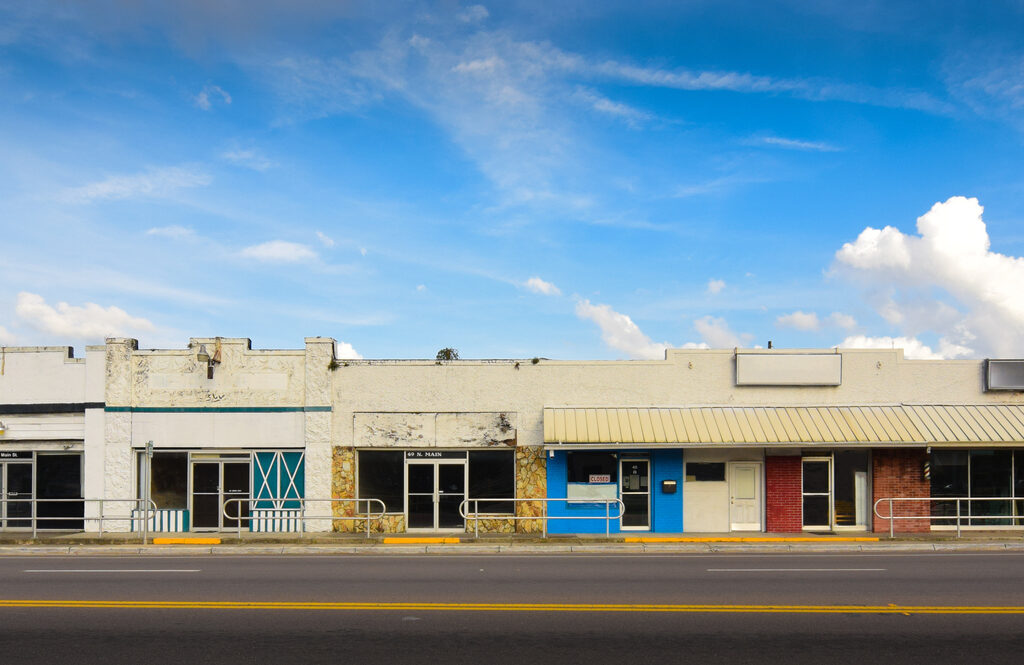Review: Bon and Lesley, Shaun Prescott, Giramondo
In Shaun Prescott’s new novel, title character Bon’s ordinary life is making the long commute from the city to an unspecified job with which he is not particularly happy. One day he gets off the train at Newnes, a town somewhere out west, in or beyond the Blue Mountains, towards Bathurst. (Newnes is actually an abandoned mining town north of Lithgow, here reimagined.) It’s a nondescript town, with industrial ruins and a shopping centre also heading that way, an everywhere and nowhere. ‘It’s time’, he thinks, in a kind of parallel of those who decide it’s time to make the tree change. But it’s a whim, not a plan, and it’s like a dream. It’s not entirely clear it’s not a dream.
Fellow commuters disperse, they catch connecting buses that don’t connect to anywhere. Trains are suspended indefinitely. Eventually Bon meets up with talkative local Steven, and crashes at Steven’s house. Hours drift into days and weeks. They watch videos, eat junk food, have strangely philosophical conversations, drink alcohol copiously. They fall into a numbing routine.
They are soon joined by Lesley, another disaffected and stranded city commuter, and Steven’s mostly silent brother Jack, who makes experimental electronic music and puts it on the internet where he hopes no-one will hear it.
In Prescott’s previous novel The Town unexplained sinkholes appear. Here there are ‘portals’ – paths and roads – into the bushlands that surround the town and are ominous, as with forests in a Fairy Tale. It becomes increasingly difficult to imagine a way out of town – they can hear the freeway but don’t seem to know how it connects to town, and the trains and other essential services seem to be permanently bypassing the town. (It becomes like those unsettling dreams where you can’t seem to get to where you’re headed.) But they wonder if the portals can lead them to the fabled town of Sofala – where nothing happens, we are told, but in a beautiful way. If Newnes is a dystopia, Sofala is the utopia, a dream and a refuge.
Prescott says the novel has no point, that it’s just a work of imagination. But it’s nevertheless full of meaning, prompted by modern life and the strangeness of quiet suburbia – which is available in rural settings too – where things are going downhill, where there’s an unnamed absence, far from the prominent places where government money gets splashed. Newnes is a purgatory between the big city and the charming rural towns one reads about, where those with means escaped during the pandemic.
The book could be a commentary on a life where we wonder, how did we get here? Is life happening elsewhere? What would happen if I spontaneously changed tracks? Am I at risk of falling through the cracks? Newnes – note the similarity to the word ‘newness’ – is the chance for something new, but it’s not necessarily improvement. The characters are, to a certain extent, victims of circumstances out of their control and without decent explanations. Even so, the four find in each other a way to negotiate life.
Lesley, who is described as ‘extremely navy in presentation’, becomes a mother figure to the ‘improvised family’. She stoically shepherds the three men, describing the problems of family life simply as similar to maths problems. As the novel progresses, it becomes weirder, and the brothers Jack and Steven regress to a point where Lesley brushes their teeth for them and puts them to bed at seven o’clock, as if they are toddlers.
The weirdness is pervasive. Newnes seems abandoned, but a mysterious ‘Colossal Man’ in a hatchback follows them around town from a distance. At one point they endure, nightly, an unseen mob throwing rocks onto their roof, so that it sounds like a hailstorm. Bon and Steven are hired by an unseen employer to pull the contents out of abandoned houses and burn them in the backyards, for no specified reason.
The novel’s concerns made me think about what we experienced in the pandemic. There were privations and assaults, and exit roads that proved not to be so, and the external world seemed to be bearing down, putting pressure on the places where we huddled together, prompting us to ask deeper questions and to seek alternate ways of connecting with community and family, in ways that were often ‘improvised.’
Nick Mattiske blogs on books at coburgreviewofbooks.wordpress.com and is the illustrator of Thoughts That Feel So Big.













